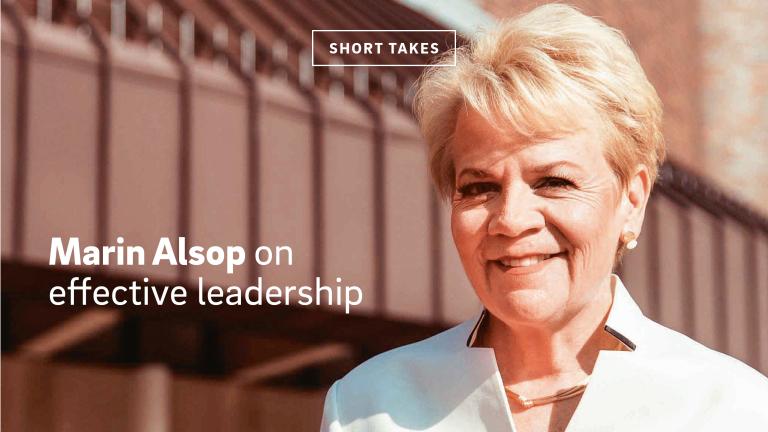Art and Business
![{[downloads[language].preview]}](https://www.rolandberger.com/publications/publication_image/TA38_EN_Covers_1_FINAL_download_preview.jpg)
The arts have much to offer for improving business strategies. Think:Act calls on seasoned artists to help business leaders unlock their creative side.



Marin Alsop decided at age 9 that she wanted to become a conductor – a profession until recently closed to women. After making headlines as the first female musical director of a major US orchestra, Alsop is pursuing her passion to put more women in leading roles.

Your appointment as the first female music director of the Baltimore Symphony Orchestra in 2007 was met with some pushback. Why are there still so few female conductors at the helm of the world's orchestras?
Marin Alsop is chief conductor of the Vienna Radio Symphony Orchestra. She started her own orchestra in New York in 1984 and the Taki Alsop Conducting Fellowship in 2002.
I think it's partly to do with societal hesitations to have women in leadership roles. We still haven't had a woman as American president – there still are many firsts for women in the 21st century where there shouldn't be any longer. There's some kind of lag about accepting women in these important and clear leadership roles. From my point of view, it's a matter of comfort. We have to get used to seeing more and more women in these roles, and then it becomes less threatening or intimidating.
Conductors have to lead teams with dozens of strong personalities and creative minds. What's your secret?
Anyone who deals with a workforce that's extremely accomplished and talented, with healthy egos invested in the outcome, has to balance being authoritative and accountable with the utmost respect and compassionate listening. I don't have a strict kind of interpretation that I can't deviate from. I've often been inspired by something a musician has brought to the table and then we've elaborated on that. To be a great leader, you have to respect the people you're working with and have to be a good listener. And you need to have a good and healthy sense of humor about yourself.
You've compared musicians to a prototype for the ideal 21st century human being as they possess all the necessary skills. What exactly are those?
We need creative thinkers, people who can find solutions to problems, and we need the great skills that musicians bring to the table. They're self-motivated, they know how to practice every day, how to self-assess and self-critique. Musicians know how to budget their time, and on the job, they know how to listen to each other, when to step back, when to step forward. All of those skills are critical to collaborative work. Also, they learn about finding solutions. The show must go on and there's always something catastrophic that's about to happen. Musicians are experts at all of this – that’s why they would be the best people to lead us.

![{[downloads[language].preview]}](https://www.rolandberger.com/publications/publication_image/TA38_EN_Covers_1_FINAL_download_preview.jpg)
The arts have much to offer for improving business strategies. Think:Act calls on seasoned artists to help business leaders unlock their creative side.
